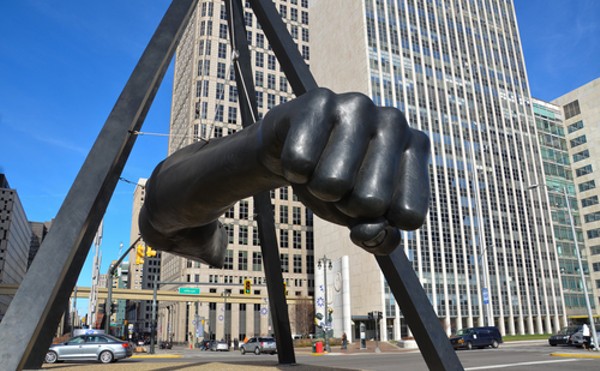If Detroit wants cable competition, it might have to create it.
As ex-mayor Dennis Archer points out, “I don’t think anybody has smelled blood in the water as if they were sharks … I’ve not had anybody [cable provider] come knock on the door.”
But Archer didn’t go looking, either. Neither he nor City Council considered changing the city ordinance that requires a cable company to service the city from edge to edge, a demand that has scared off competition.
Instead of changing the requirement, some think they have a better idea.
Detroit Auditor General Joe Harris is always on the lookout for new ideas and money-saving possibilities. Harris and others in city government, including City Council President Maryann Mahaffey, say the only way Detroit is going to get cable competition, lower prices and better service is to build its own system.
It’s not as crazy as it sounds. Harris commissioned an extensive, $200,000 study by telecommunications experts Plante & Moran, released in 2001, that estimates Detroit could build the foundation for a fiber-optic network for a mere $16.8 million.
How?
“They said Detroit’s lighting system was the crown jewel of the city, because we own the network” Harris says. “Most of the cost of laying a cable system is digging up the streets and rights of way, and because the city owns the lighting system down major arteries, all we’d have to do is go into the manholes and lay the wire.”
The $16.8 million, a pittance in the high-flying world of telecommunications costs, would run fiber-optic lines down routes such as Woodward, Gratiot, Michigan and Grand River, as well as connect city facilities and the downtown area.
The study estimated the system would pay for itself within six years and save the city the $3 million a year it pays to Ameritech for Internet service. It would also increase the quality of Internet service at city libraries and other public facilities.
“You have to spend money in order to save money,” Harris says. “Fiber optics, they’re calling it the water of the 21st century. It’s what’s driving business, and the economy.”
The city could lease this system to cable, Internet and other telecommunications providers. For the city to actually become its own cable TV provider, as is the case in as many as 400 cities nationwide, Detroit would have to build out from the fiber-optic network to homes, which would cost at least $170 million, according to George Booth, Comcast’s regional vice president. And that wouldn’t cover the millions it would cost to operate the system, Booth said.
Harris says the fiber-optic network would help Detroit attract high-tech businesses, and pointed to Oakland County as an example.
“Oakland has wired itself. Wayne is wiring itself. We’re behind the times, dragging our feet,” Harris says.
“We’ve been pushing for this for years,” says Kamal Amen-Ra, executive director of the city’s cable commission. “We want to take Detroit into the future with endless technological possibilities.”
Mahaffey likes the idea, and wants to see it happen. Mayor Kwame Kilpatrick was not available for comment, but stated consistently during his campaign that he wanted to see the city wired with fiber optics.
Harris says he’s optimistic that Kilpatrick will take more action on this proposal than Archer did.
“I’m hopeful we have a young mayor that can show us some results,” Harris says. “Hopefully, he’s not going to be concerned about the next four years, but for the groundwork he lays for the next eight, 10 or more years.”
Lisa M. Collins is a Metro Times staff writer. E-mail [email protected]




